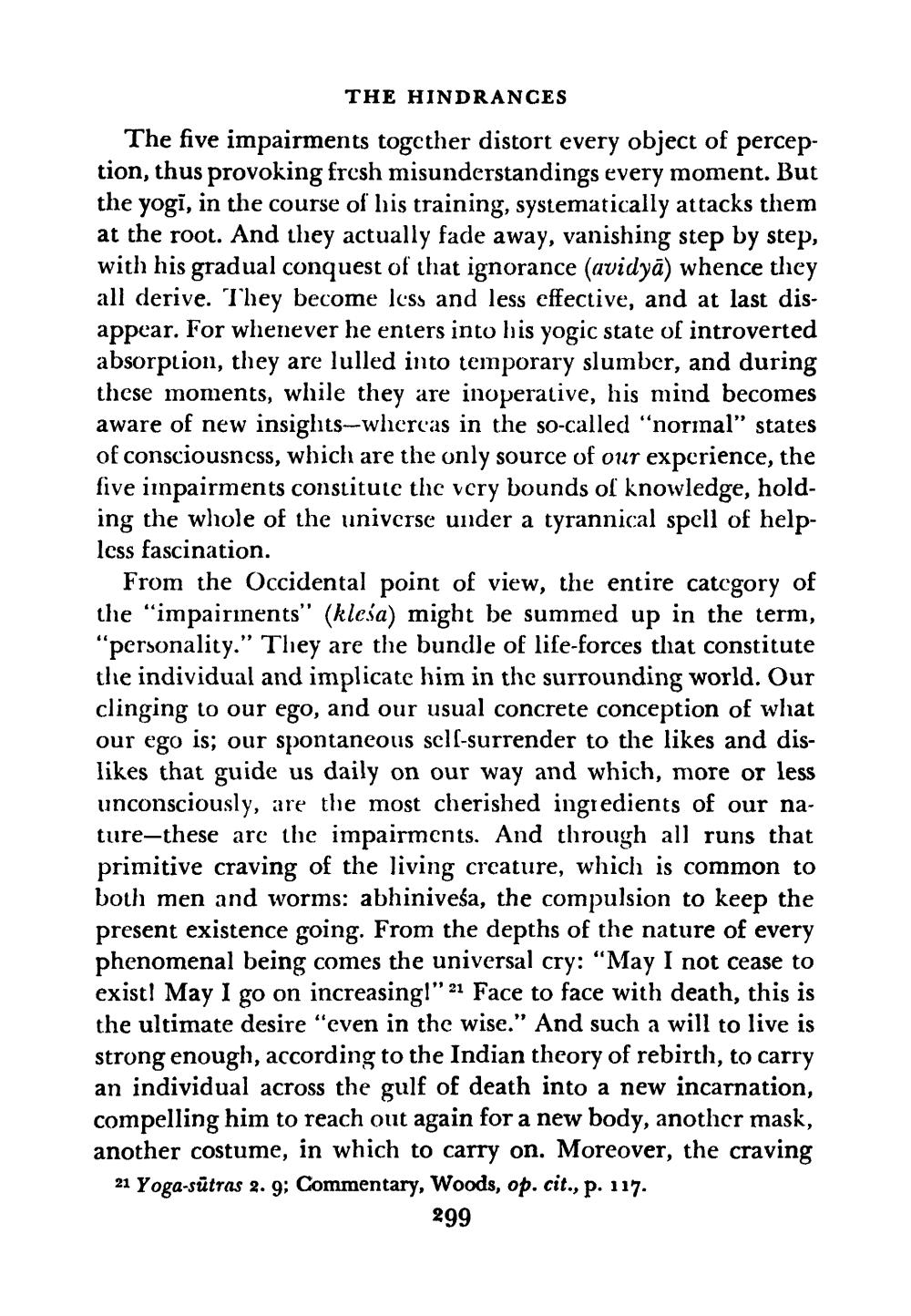________________
THE HINDRANCES
The five impairments together distort every object of perception, thus provoking fresh misunderstandings every moment. But the yogi, in the course of his training, systematically attacks them at the root. And they actually fade away, vanishing step by step, with his gradual conquest of that ignorance (avidyā) whence they all derive. They become less and less effective, and at last disappear. For whenever he enters into his yogic state of introverted absorption, they are lulled into temporary slumber, and during these moments, while they are inoperative, his mind becomes aware of new insights-whereas in the so-called "normal" states of consciousness, which are the only source of our experience, the five impairments constitute the very bounds of knowledge, holding the whole of the universe under a tyrannical spell of helpless fascination.
From the Occidental point of view, the entire category of the "impairments" (kleśa) might be summed up in the term, "personality." They are the bundle of life-forces that constitute the individual and implicate him in the surrounding world. Our clinging to our ego, and our usual concrete conception of what our ego is; our spontaneous self-surrender to the likes and dislikes that guide us daily on our way and which, more or less unconsciously, are the most cherished ingredients of our nature-these are the impairments. And through all runs that primitive craving of the living creature, which is common to both men and worms: abhiniveśa, the compulsion to keep the present existence going. From the depths of the nature of every phenomenal being comes the universal cry: “May I not cease to exist! May I go on increasing!" 21 Face to face with death, this is the ultimate desire "even in the wise." And such a will to live is strong enough, according to the Indian theory of rebirth, to carry an individual across the gulf of death into a new incarnation, compelling him to reach out again for a new body, another mask, another costume, in which to carry on. Moreover, the craving
21 Yoga-sutras 2. 9; Commentary, Woods, op. cit., p. 117.
299




